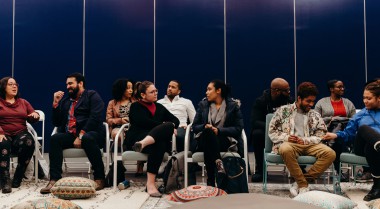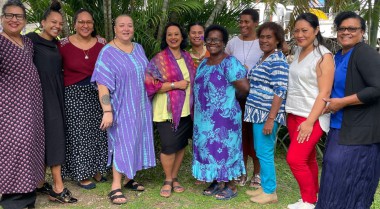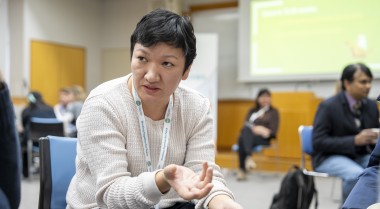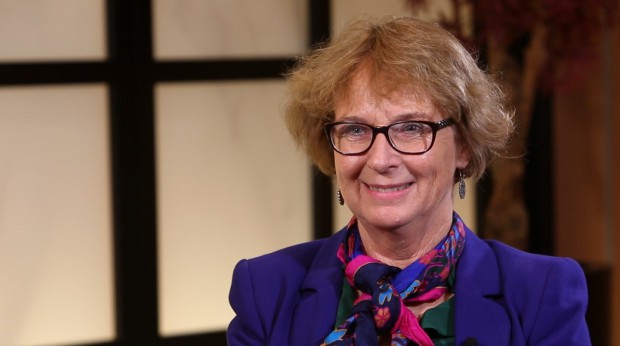
Civil Society Statement: United Nations Security Council Open Debate on Promoting Conflict Prevention
On 13 March 2024, Sharon Bhagwan Rolls, Programme Manager of the Pacific Women Mediators Network and GPPAC International Steering Group Gender Liaison delivered the following statement on behalf of civil society to the UN Security Council open debate on ''Promoting Conflict Prevention – Empowering All Actors Including Women and Youth.''
President, Excellencies, civil society colleagues,
Thank you for the opportunity to brief you today, drawing on the work of the GPPAC network in the Pacific Island region in advancing inclusive and comprehensive prevention of all forms of violence.
We live in a time of growing global securitisation and militarised responses to all types of crises, including armed conflict and climate change impacts. This trend redirects resources away from conflict prevention, damaging the gains achieved by local peacebuilders.
In 2000, when women peacebuilders collectively advocated for the women, peace and security (WPS) agenda at the UN Security Council, it was for a new gender-transformative approach to peace and security that requires making conflict prevention a priority on the Security Council's agenda.
To end conflicts, the 2015 Global Study on UNSCR1325 raised the urgency 1) to reduce military expenditures and control the availability of armaments in coherence with countries' commitments to human rights and gender equality; 2) to promote non-violent forms of conflict resolution and strengthen comprehensive early warning systems; and 3) to foster a culture of peace through peace education and inclusion - because WPS agenda is about ending conflict, not about making conflict safer for women.
The Global Study emphasised that as long as harmful gender norms, traditional gender relations, and gender inequalities persist, conflicts, crises, and violence will continue. Only transforming our approach from militarised security towards prioritising human security with a gender lens can bring lasting peace.
The UN Security Council has a unique responsibility in advancing this transformation, relying on the experiences at the local level.
Practically, learning from local peacebuilders, including women and young women, including through regular Arria Formula events and briefings, can provide the Council with concrete ideas for what peace operations, peacekeeping missions, integrated offices, as well as UN Country teams should do in practice.
Grounded in local communities, the work of GPPAC Pacific operationalises inclusive human security approaches through conflict and gender-sensitive programming across the Triple Nexus.
This enables us to collectively meet the human security priorities of diverse people who experience intersecting crises: disasters, COVID-19 and climate change, armed conflicts, inter-communal violence and political crises.
Using traditional and local knowledge, local peacebuilders develop locally appropriate strategies to prevent and address the recurrence of conflict. As first responders, we address threats comprehensively and inclusively without differentiating between development, humanitarian, or peace and security issues.
Yet, we continue to be constrained by short-term project funding for specific projects, while resources for conflict prevention are increasingly drying out in favour of securitised approaches.
We rely on volunteer work to build connections between diverse projects. Our common peace and security is not a project and cannot be achieved through traditional securitised approaches.
Normatively, we also have an inclusive and comprehensive human security policy framework that can guide the Council's norm-setting towards human security.
Through the adoption of a dedicated Peace and Security pillar in the Blue Pacific Strategy to 2050, in addition to the Boe Declaration on Regional Security, Pacific Leaders have affirmed the call from Pacific peacebuilders to embrace an expanded concept of security that includes human security, economic security, humanitarian assistance, environmental security, to build resilience to disasters and climate change and that Peacebuilding requires a partnership with non-governmental organisations to enhance collectively capacity including for prevention. The revitalised Pacific Leaders Gender Equality Declaration of 2023 reflects women peacebuilders call for the implementation of the WPS agenda by ensuring the full, equal, effective, and meaningful leadership and participation of women and girls in all their diversity at every stage of peace processes, conflict prevention, conflict resolution and peacebuilding for peace and security.
Mr. President, in the follow-up General Assembly resolution to the report of the Secretary-General entitled 'Our Common Agenda' (A/RES/76/6), Member States pledged to 'strengthen global governance for the sake of present and future generations'. This highlights the urgency for the UN Security Council to strengthen its role in the global prevention ecosystem. Drawing lessons from GPPAC Pacific and GPPAC's global network of local peacebuilders, we offer the following suggestions:
- First, prevention requires both a short-term and a long-term approach. Short-term approaches include the UNSC leadership in sharpening norms and practices for the full, equal, and meaningful participation of all actors in all aspects of peace and security, as well as encouraging the development of national prevention strategies and effective early warning and early response measures. Long-term approaches include structural approaches to address the root causes of conflict, including inequality and harmful gender norms, and emerging sources of conflict, including the impacts of climate change and competition over natural resources.
- Second, in its resolution 1366 (2001), the Council highlighted the absence of a comprehensive UN conflict prevention strategy. However, this strategy requires a more coherent implementation plan to adequately support Member States and their people in advancing their prevention priorities. We see it especially clearly at the field level. The Council should request the Secretary-General to appoint a Group of Experts to develop guidelines on what effective national, regional and global prevention strategies look like that Member States could draw upon as appropriate and conduct an assessment of the UN System's capacities for conflict prevention, with concrete recommendations being operationalised through a dedicated process.
- Third, as a result of the leadership of the Pacific women peacebuilders, the 2015 UNSC Resolution 2242 on Women, Peace and Security also noted 'the changing global context of peace and security, in particular relating to [...] the impacts of climate change' (S/RES/2242, PP13). We welcome that the Council recognised the adverse effects of climate change on peace and security in many situations. We encourage the Council to provide normative and operational guidance to the UN system for addressing peace and security risks and opportunities posed by climate change.
- Fourth, with the launch of the Pacific Women Mediators Network in June 2023, the process of women's engagement in the Pacific can become more streamlined across various government priorities, including climate action, development, peace and security, and human rights. We encourage the Council to request the Secretary-General to develop concrete policy guidance on how the UN could support specifically women mediators networks, including those locally-led.
- Fifth, a more comprehensive approach to conflict prevention requires inclusion. The Council should prioritise consistent engagement on the YPS Agenda in its work. This entails regular inclusion of YPS on its agenda, ensuring young women have the opportunity to brief this Council, as well as hosting an open debate to discuss the Secretary-General’s Report on Youth, Peace, and Security upon its release.
- Finally, the Council should build on the gains achieved by the General Assembly resolution A/RES/76/305 on financing for peacebuilding and adequately operationalise its provisions, including on financing for women, youth and local peacebuilders, as well as adequate and sustainable financing for prevention and peacebuilding.
Mr. President, conflict prevention works.
Our recent research found that investing $30K in women-led prevention can bring a return on financial investment of up to $1M.
If our collective goal is ''to save succeeding generations from the scourge of war,'' it's imperative that we shift from reaction to prevention and inclusive human security grounded in the analysis and practices of local communities. We encourage the Council to consider our recommendations and offer our support in advancing prevention priorities across the conflict cycle and the Triple Nexus.
I thank you.
UN Photo/Eskinder Debebe



